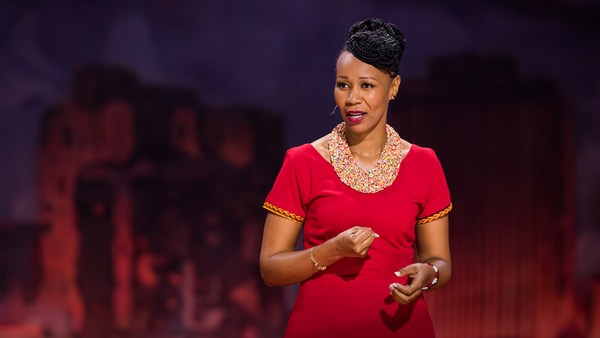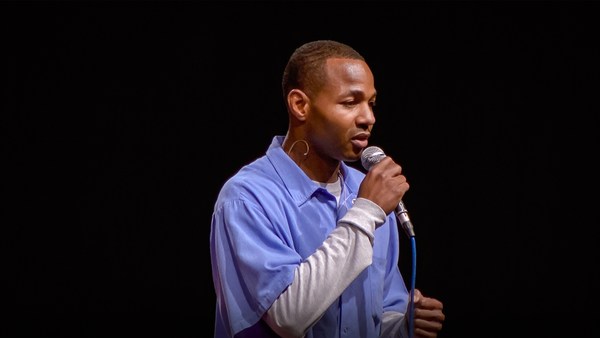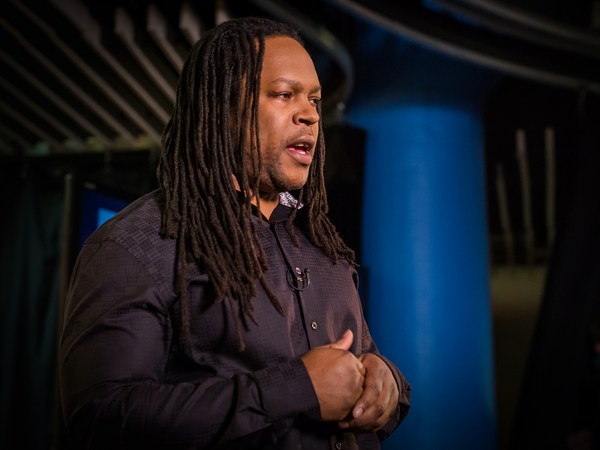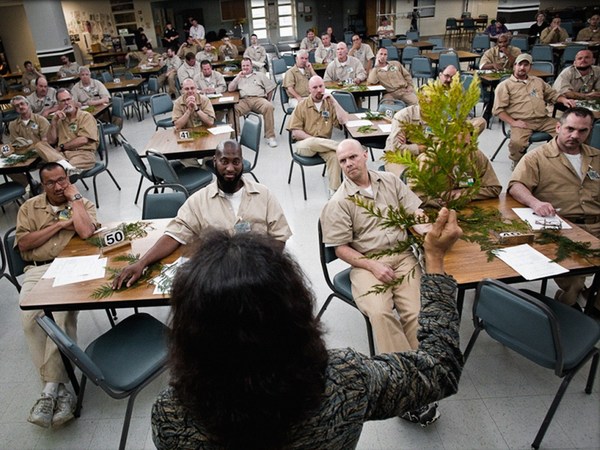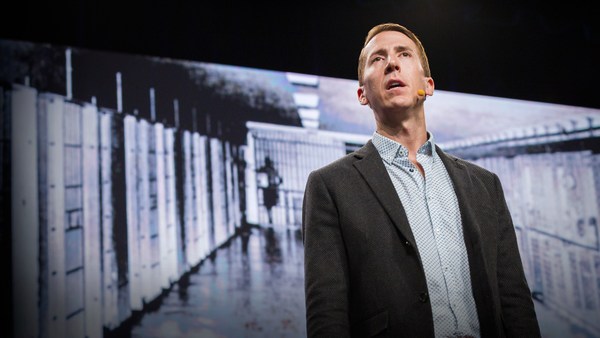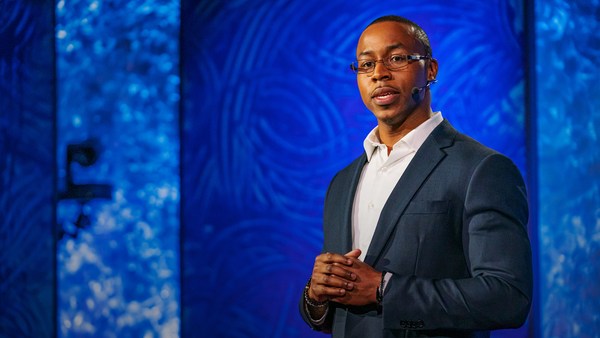I want to tell you a story about Manson. Manson was this 28-year-old interior designer, a father to a loving daughter, and a son who found himself behind bars due to a broken-down judicial system. He was framed for a murder he didn't commit and was sentenced to the gallows. There were two victims of this murder -- the victim who actually died in the murder and Manson, who had been sentenced to prison for an offense which he did not commit. He was locked up in a cell, eight by seven, with 13 other grown-up men for 23 and a half hours a day. Food was not guaranteed that you'd get. And I remember yesterday, as I walked into the room where I was, I imagined the kind of cell that Manson would have been living in. Because the toilet -- The row of the small rooms that were there were slightly bigger than the eight-by-seven cell.
But being in that cell as he awaited the executioner -- because in prison, he did not have a name -- Manson was known by a number. He was just a statistic. He did not know how long he would wait. The wait could have been a minute, the executioner could have come the next minute, the next day, or it could have taken 30 years. The wait had no end. And in the midst of the excruciating pain, the mental torture, the many unanswered questions that Manson faced, he knew he was not going to play the victim. He refused to play the role of the victim. He was angry at the justice system that had put him behind bars. But he knew the only way he could change that justice system or help other people get justice was not to play the victim.
Change came to Manson when he decided to embrace forgiveness for those who had put him in prison. I speak that as a fact. Because I know who Manson is. I am Manson. My real name is Peter Manson Ouko. And after my conviction, after that awakening of forgiveness, I had this move to help change the system. I already decided I was not going to be a victim anymore. But how was I going to help change a system that was bringing in younger inmates every day who deserve to be with their families?
So I started mobilizing my colleagues in prison, my fellow inmates, to write letters and memoranda to the justice system, to the Judicial Service Commission, the numerous task forces that had been set up in our country, Kenya, to help change the constitution. And we decided to grasp at those -- to clutch at those straws, if I may use that word -- if only to make the justice system work, and work for all.
Just about the same time, I met a young university graduate from the UK, called Alexander McLean. Alexander had come in with three or four of his colleagues from university in their gap year, and they wanted to help assist, set up a library in Kamiti Maximum Prison, which if you Google, you will see is written as one of the 15 worst prisons in the world. That was then. But when Alexander came in, he was a young 20-year-old boy. And I was on death row at that time. And we took him under our wing. It was an honest trust issue. He trusted us, even though we were on death row. And through that trust, we saw him and his colleagues from the university refurbish the library with the latest technology and set up the infirmary to very good standards so that those of us falling sick in prison would not necessarily have to die in indignity.
Having met Alexander, I had a chance, and he gave me the opportunity and the support, to enroll for a university degree at the University of London. Just like Mandela studied from South Africa, I had a chance to study at Kamiti Maximum Security Prison. And two years later, I became the first graduate of the program from the University of London from within the prison system. Having graduated, what happened next --
(Applause)
Thank you.
(Applause)
Having graduated, now I felt empowered. I was not going to play the helpless victim. But I felt empowered not only to assist myself, to prosecute my own case, but also to assist the other inmates who are suffering the similar injustices that have just been spoken about here. So I started writing legal briefs for them. With my other colleagues in prison, we did as much as we could. That wasn't enough. Alexander McLean and his team at the African Prisons Project decided to support more inmates. And as I'm speaking to you today, there are 63 inmates and staff in the Kenya Prison Service studying law at the University of London through distance learning.
(Applause)
These are changemakers who are being motivated not only to assist the most indolent in society, but also to help the inmates and others get access to justice. Down there in my prison cell, something kept stirring me. The words of Martin Luther King kept hitting me. And he was always telling me, "Pete, if you can't fly, you can run. And if you can't run, you can walk. But if you can't walk, then you can crawl. But whatever it is, whatever it takes, just keep on moving." And so I had this urge to keep moving. I still have this urge to keep moving in whatever I do. Because I feel the only way we can change our society, the only way we can change the justice system -- which has really improved in our country -- is to help get the systems right.
So, on 26th October last year, after 18 years in prison, I walked out of prison on presidential pardon. I'm now focused on helping APP -- the African Prisons Project -- achieve its mandate of training and setting up the first law school and legal college behind bars. Where we are going to train --
(Applause)
Where we are going to train inmates and staff not only to assist their fellow inmates, but to assist the entire wider society of the poor who cannot access legal justice.
So as I speak before you today, I stand here in the full knowledge that we can all reexamine ourselves, we can all reexamine our situations, we can all reexamine our circumstances and not play the victim narrative. The victim narrative will not take us anywhere. I was behind bars, yeah. But I never felt and I was not a prisoner. The basic thing I got to learn was that if I thought, and if you think, you can, you will. But if you sit thinking that you can't, you won't. It's as simple as that.
And so I'm encouraged by the peaceful revolutionaries I've heard on this stage. The world needs you now, the world needs you today. And as I finish my talk, I'd just like to ask each and every single one of you here, wonderful thinkers, changemakers, innovators, the wonderful global citizens we have at TED, just remember the words of Martin Luther King. Let them continue ringing in your heart and your life. Whatever it is, wherever you are, whatever it takes, keep on moving.
Thank you.
(Applause)
Thank you.
(Applause)
